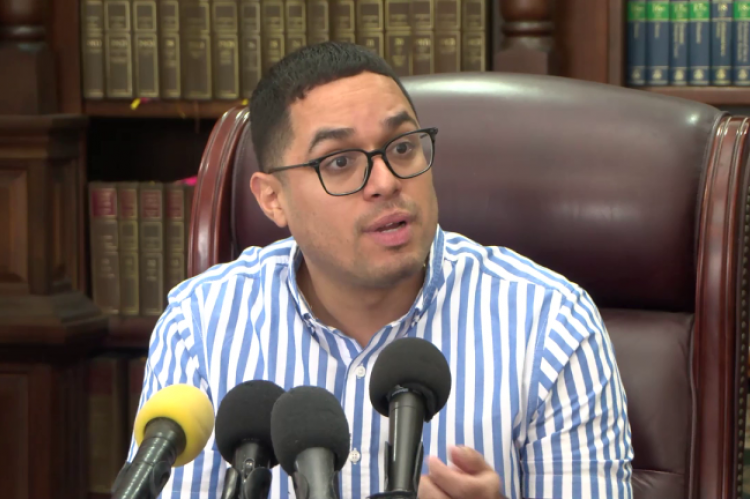“Stretched to Breaking Point: The Legal Overreach That Left Farmers – and Taxpayers – on the Hook”
ASR/BSI wins half a million dollars in court, but the slashed award and shaky claims raise big questions about fairness, government complicity, and legal overreach.
By: Omar Silva I Editor/Publisher
National Perspective Bz | Investigative Desk
Belize City: Tuesday 29th July 2025
📰 HEADLINE FEATURE:
The High Court’s landmark ruling against the Belize Sugar Cane Farmers Association (BSCFA) and two of its members was supposed to be about principle: “upholding economic interests,” as government senator and ASR/BSI attorney Hector Guerra put it.
But strip away the legal gloss, and another story emerges:
- A case built on stretched arguments and blurred lines.
- A damages claim slashed by nearly two-thirds.
- And a government that stood back while a foreign multinational’s lawyer — their own senator — won a judgment that Belizeans will now pay.
The Overreach That Won the Day
At the heart of the case was ASR/BSI’s claim that the 2021 blockade amounted to “unlawful interference with economic interests.”
This was the first time Belizean courts tested that legal theory — and ASR/BSI’s team pushed it to its limit.
Here’s what they argued:
- That cane farmers trespassed on BSI’s private road and mill compound.
- That farmers and trucks blocked public roads leading to the mill.
- That this blockade intentionally choked off cane deliveries and therefore halted sugar production.
- And that this disruption cost ASR/BSI and BELCOGEN $1.5 million in lost contracts, sales, and electricity revenue.
The Court’s “Partial Buy-In”
Justice Rajiv Goonetilleke agreed — but not entirely.
- He found that trespass did occur on BSI’s private road.
- He found that the blockade was intentional and aimed to pressure the company.
- But he slashed ASR/BSI’s $1.5 million claim to just $520,674 and BELCOGEN’s claim to $43,456.
Why the cut? Because the court saw that:
- Some losses could have been avoided.
– BELCOGEN had reserve fuel but didn’t use it.
– BSI could have mitigated damages but didn’t.
In short: the judge wasn’t fully convinced that all of ASR/BSI’s claimed damages were justified.
Doubt That Should Have Helped the Farmers
In law, when doubt exists, the burden of proof falls on the claimant.
If ASR/BSI couldn’t prove all their damages, that doubt should favor the farmers. Instead, the court cut the claim but still handed down liability — creating a kind of “split-the-difference” justice.
The result?
- The farmers lost, but not completely.
- ASR/BSI won, but not everything.
- And the taxpayers will still end up paying the tab — even for damages the judge wasn’t fully sold on.
The Government’s Quiet Complicity
That’s the final betrayal.
Back in 2021, Prime Minister John Briceño signed an indemnity letter to calm tensions, promising that the government would cover any fallout from the blockade.
Three years later, that letter means:
- Every dollar awarded — plus 6% interest per year and legal costs — will come from the public purse.
Meanwhile, the government:
- Never challenged the case’s stretching of facts (like mixing public-road obstruction into a trespass claim).
- Never defended its own public roads.
- And let a government senator lead the charge for ASR/BSI.
The Foreign Hand in the Local Court
And let’s not forget who argued this case.
Hector Guerra — a freshly appointed government senator — represented ASR/BSI.
A man sworn to serve Belizeans in the Senate stood in the High Court and won a case that:
- Drains the Treasury.
- Benefits a foreign multinational.
- Punishes Belizean farmers.
The Bigger Picture
This judgment set a precedent that should terrify every union, every farmer group, every protestor in Belize:
Block a business — even partly on public roads — and you could face crippling damages.
The legal door is now wide open for corporations to sue grassroots groups for economic interference, even if the state’s own property is at the center of the dispute.
Final Word: Stretched Law, Stretched Justice
The law was stretched. The narrative was stretched. And justice?
That was stretched too.
The damages claim was cut by two-thirds — a flashing sign that the case wasn’t airtight.
But instead of that doubt helping the farmers, it became a “discounted bill” — one Belizeans will now pay.
ASR/BSI got their “principle.”
The court got its precedent.
The farmers got the blame.
And the government? They got away with quiet complicity — while you got stuck with the check.
- Log in to post comments

